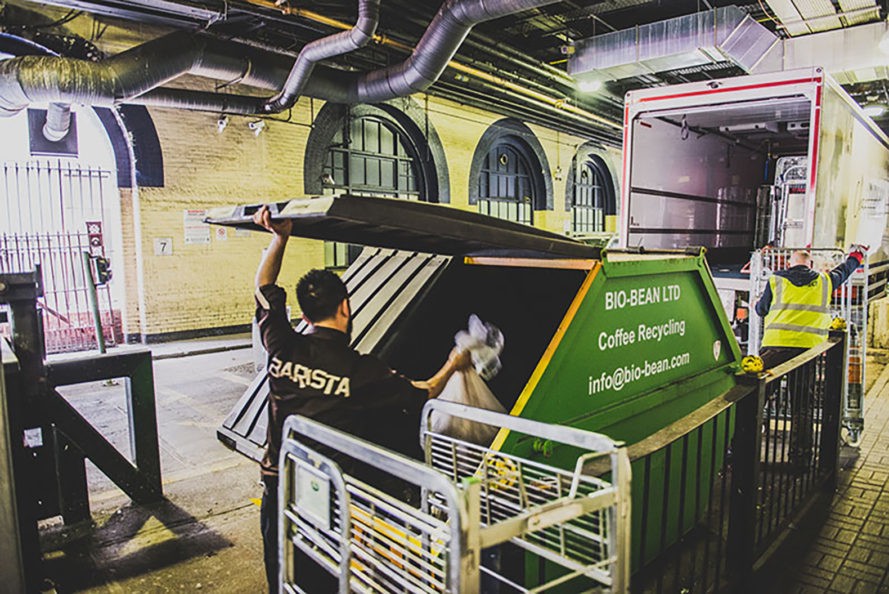Brits may prefer tea, but their busses will be getting a buzz from coffee. U.K. startup bio-bean, Shell, and Argent Energy have teamed up to fill London’s double-deckers with an innovative new java-based fuel. According to CNN, bio-bean has already brewed up 6,000 liters (1,585 gallons) of the high-octane joe, an amount able to power one city bus for an entire year.
So, how is the coffee oil manufactured? As bio-bean shares on its site, the company gathers grounds everywhere from small cafes to Starbucks-like chains to universities and even instant coffee factories. The grounds are then brought to the bio-bean plant where they are dried and coffee oil is extracted.
The extracted oil is then blended with other fats and oils to create a “B20” biofuel, which is further mixed with traditional mineral diesel. The new concoction offers a 10-15 percent reduction in CO2 emissions as compared to pure diesel, and prevents the release of any methane that would have occurred had the grounds been sent to a landfill. Notably, the mix does not require a specialized engine and can be used with any diesel bus, making the switch easy.
Bio-bean estimates that Britain produces nearly 500,000 tonnes of coffee grounds a year—enough to power a third of London’s entire transport network. At the moment, bio-bean’s plant has the capacity to recycle 50,000 tonnes of grounds a year. Company founder Arthur Kay, however, hopes to scale the project. Kay, in fact, has his sights set on the U.S. where coffee consumption is the highest of anywhere on the planet with 400 million cups downed daily.
Click here to go to the original source


